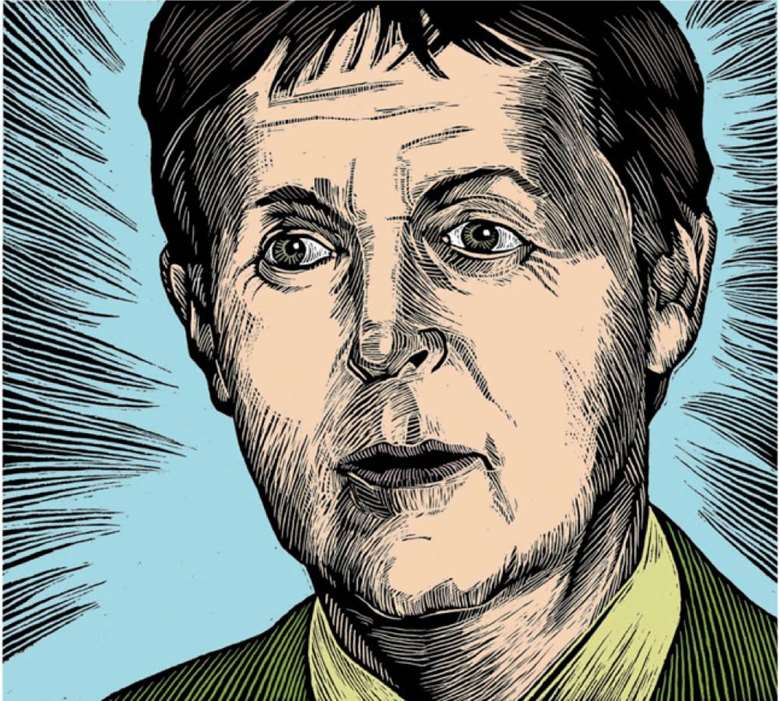Paul McCartney | My Music: ‘What matters to me is whether the music is good, not whether it's classical or jazz or flamenco’
Thursday, March 21, 2013
The legendary Beatle, singer-songwriter and composer on crossing musical genres

One of my earliest memories is of listening to the radio when I was about three. It would have been one of the BBC stations and I remember my father pointing out to me the booming sound – this was the bass. He was a good amateur musician – there was music in the house all the time – and he would always be dissecting pieces of music for me and my brother: not in an academic way, but so we understood the components – the melody, the harmony. So I was listening to music as though it was a jigsaw puzzle from the start – it was great to be able to identify the different lines rather than letting it wash all over you. Analysing a piece of music like that fascinated me and maybe it's no coincidence I became a bass player.
There was a lot of piano music that has stayed with me, like Chopin and the Golliwog's Cake-walk. I really liked the play-out music of programmes, with the announcer intoning over the top: 'Orchestra conducted by Paul Fenhoulet', that sort of thing.
‘I was 14 when my mother died and I wrote my first song, “I lost my little girl”. I only knew a couple of guitar chords but they were enough’
I wanted to learn to play the piano, but my father wouldn't teach me – he said I needed a proper teacher and somehow that never happened. 'Learn how to play the piano,' I was told, 'and you'll get invited to parties'. Imagine doing that now with decks or iPods! I did pick up the piano, by watching and playing around, and eventually I took over from my father for the family's New Year's Eve party. Everyone turned up in their finery, the girls drinking blackcurrant and rum or gin and 'it'. My Uncle Ron would come up to me and ask, 'Do you know Carolina Moon?' I'd say yes, and he'd say, 'Well don't play it yet!' He would wait and wait and judge the perfect time, then give me the nudge and I'd play it – timing is everything.
A lot of this light music had an impact on me as a composer – I took from it a deep interest in how to shape a melody. In fact, when I first met John Lennon you'd think we'd have talked rock'n'roll, but I remember us discussing Little White Lies – that kind of 1920s and '30s song was the platform we took off from.
I was 14 when my mother died and I wrote my first song, 'I lost my little girl'. I only knew a couple of guitar chords but they were enough: I had the melody going up and the harmony going down from G to G7 to a C chord. It was a crummy little song, but it got me going. Since then, I've always been able to sit down and craft a melody. I start out with a blank screen inside my head and think, 'What kind of melody do I want? Where do I want to go?' And I reach for the piano or the guitar, either to use a sequence of chords that I know, or to experiment with new ones.
Composing Ecce cor meum was a great learning experience in that sense – it's much more chromatic than my previous classical works and there's a lot more counterpoint in it. I've done a lot of four-part writing before now, where the voices all sing the same thing at the same time. Using counterpoint to stretch the words became like a crossword puzzle. I hadn't realised that you couldn't just align the phrase with the notes and use fragments of it – they've all got to make sense.
I don't write to 'be' anything, I write to suit the occasion and I write for what I have available. Those of us who have made some kind of journey across musical genres may have led some people to classical music unwittingly, but the point to me is that there is a generation maturing with the music, who perhaps turn on BBC Radio 3 instead of Radio 1. They loved rock'n'roll, then Bob Dylan came along and the poetry became more important, then with Pink Floyd pop became more symphonic and it encouraged people to look to the left and right of what they were hearing. They started to want something more – in the same way that having loved Chopin in general I've lately got into the Nocturnes. What matters to me is whether the music is good, not whether it's classical or jazz or flamenco. All the great composers will stay around because what they wrote is well-structured. Maybe the avant-garde classical scene of the 1960s won't last in that way – like punk rock, it had to happen at the time and it made people listen again.
This article originally appeared in the Awards 2006 issue of Gramophone. Never miss an issue of the world's leading classical music magazine – subscribe today







